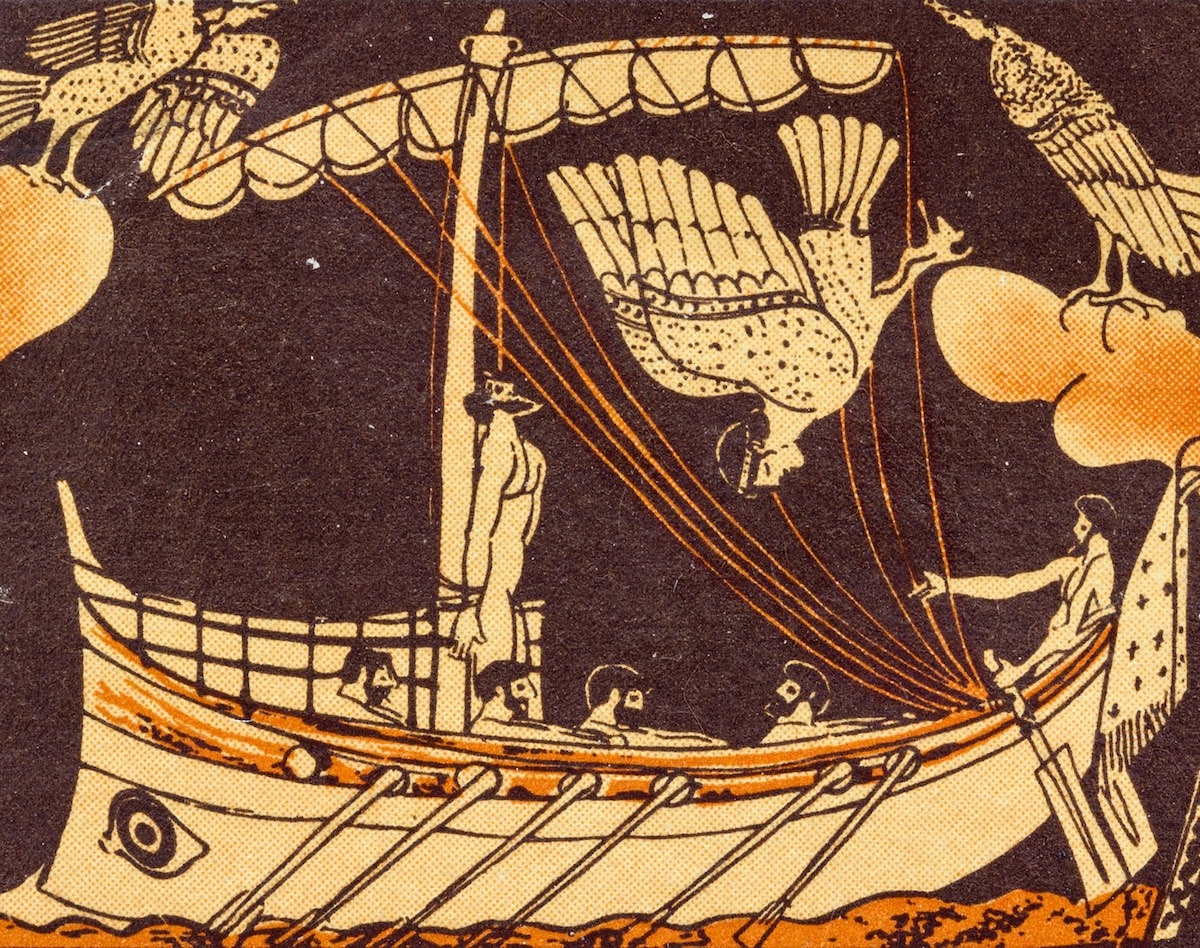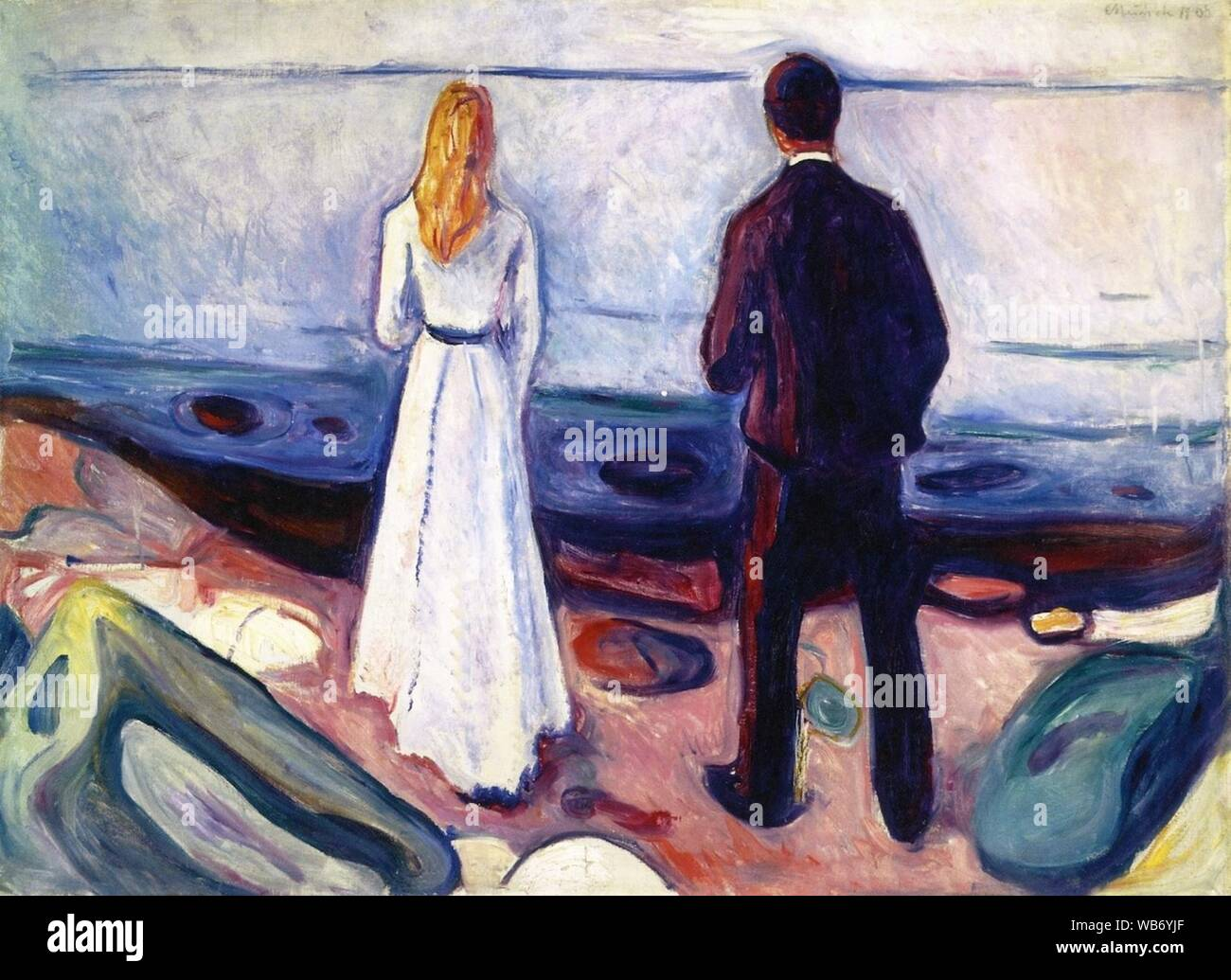The Odyssey, attributed to the legendary poet Homer, remains a cornerstone of Greek literature and a masterpiece of epic poetry that has enthralled audiences for nearly three millennia. This ancient narrative of adventure and self-discovery continues to resonate profoundly today, evidenced by its latest theatrical adaptation and new translations that breathe fresh life into the text. Upcoming cinematic interpretations, including a much-anticipated movie directed by Christopher Nolan, promise to further revive interest in this timeless tale. As readers and audiences engage with the complexities of Odysseus’ journey, they find themselves drawn into a world where themes of loyalty, deception, and the quest for identity unfold. With innovative translations and modern interpretations, The Odyssey is undeniably finding its moment in contemporary culture, reminding us of the story’s epic appeal and the universal truths it reveals.
Homer’s renowned epic, often known as the Greek epic poem, has captivated imaginations and shaped literary traditions for generations. This storied piece of literature tells the tale of Odysseus, whose cleverness and determination lead him through trials on his quest home. The unfolding journey is not just physical but also metaphysical, rich with lessons on the human experience. As various adaptations, including contemporary translations and film interpretations, bring the narrative to life anew, we witness its relevance in modern storytelling. The Odyssey, with its intricate characters and profound themes, offers timeless wisdom that continues to inspire and challenge readers across ages.
The Timelessness of Homer’s Epic Poetry
Homer’s epic poetry has been a cornerstone of Western literature for nearly three millennia, and it continues to resonate with readers today. Works like ‘The Odyssey’ showcase not just thrilling adventures but also profound philosophical themes that engage the readers on a personal level. The poetic form, characterized by its vivid imagery and rhythmic structure, invites readers into a world where gods intervene and human vulnerability is laid bare. This connection to fundamental human experiences is perhaps what keeps this ancient narrative alive, as each new generation finds something new within its lines.
Moreover, recent adaptations and translations have breathed new life into this epic work. With modern interpretations by scholars like Daniel Mendelsohn, contemporary audiences can experience ‘The Odyssey’ through a lens that emphasizes its relevance in today’s society. These new translations not only make the text accessible but also highlight the timeless themes of identity, journey, and the complexities of human relationships that are ever-present in Homer’s work.
New Translations of ‘The Odyssey’: A Fresh Perspective
‘The Odyssey’ is experiencing an exciting revival with new translations that aim to capture the essence of the original text while making it relatable for today’s readers. Daniel Mendelsohn’s upcoming translation is generating buzz for its critical insights and lyrical quality. This new rendition not only strives for accuracy but also emphasizes the emotional landscapes of the characters, ensuring that Odysseus’s journey feels immediate and real. As readers embark on this epic narrative, they are met with an articulate portrayal of the struggles and triumphs faced by the characters, drawing them into the story’s fabric with every turn of phrase.
In addition to Mendelsohn’s work, other translators like Emily Wilson are redefining the landscape of ‘The Odyssey’ translations. Wilson, the first female translator of this epic, brings her own unique voice and sensitivity to the text, enriching the storytelling. Her interpretive choices allow modern readers to see Penelope and Telemachus in nuanced ways that previous translations might have overlooked. These vibrant adaptations contribute significantly to the rejuvenation of interest in Homeric texts, encouraging new discussions about their themes and characters, making ancient wisdom resonate with contemporary audiences.
The Cultural Impact of Homer’s Works Today
The influence of Homer’s works extends far beyond their literary merit; they have permeated culture, inspiring countless adaptations across various media. Recent projects, such as the one directed by Christopher Nolan, continue to showcase how ‘The Odyssey’ can be reimagined for the screen, blending cutting-edge technology with timeless storytelling. Nolan’s cinematic approach holds the potential to attract a younger audience who may not yet be familiar with the original text, offering them a new realm of engagement with classic literature.
Moreover, the enduring nature of the themes in ‘The Odyssey’—like heroism, loyalty, and the quest for home—has made it a subject of study and interpretation in academic circles and beyond. Scholars and classicists, like Greg Nagy, help bridge the gap between the ancient and the modern by exploring these themes’ relevance in contemporary society. As ‘The Odyssey’ continues to inspire new generations, it finds itself not just as a relic of Greek literature but as a living document that speaks to the human experience across ages.
Understanding Odysseus: The Tricky Hero
Odysseus remains one of the most compelling characters in Homer’s ‘The Odyssey’, embodying the qualities of a trickster. His cunning nature allows him to navigate perilous situations, often bending societal norms to his advantage. This complexity captivates readers and challenges the traditional notions of heroism, prompting discussions about morality and ethics within the narrative. Scholars explore how Odysseus—while flawed and vengeful—teaches us about the necessity of adaptability and intelligence, critical elements for survival in a turbulent world.
Moreover, the duality of Odysseus’s character encourages readers to reflect on their own identities and the masks people wear in different aspects of life. The character’s journey is not just a physical adventure but also a deep exploration of self. As he encounters various challenges, from the temptations of Sirens to the wrath of Poseidon, each experience reveals layers of his identity. This reflection brings modern readers closer to the epic, allowing them to invest in Odysseus’s journey as a metaphor for their own quests through life.
Penelope: The Smartest Character in ‘The Odyssey’
Penelope, often overshadowed by her heroic husband, emerges as one of the most intelligent and resourceful characters in ‘The Odyssey’. Faced with the daunting task of fending off suitors and preserving her household, she showcases a blend of wit and resilience that rivals Odysseus’s cunning. Her ability to weave and unweave the tapestry symbolizes her strategic thinking; by delaying her decision, she reflects the complexity of loyalty and love, demonstrating that heroism can manifest in many forms beyond physical strength.
Scholarly interpretations of her actions, particularly her dreams and narratives, suggest that Penelope not only plays a supporting role but also engages in a battle of wits against both the suitors and the forces that threaten her family. This depth reveals the multifaceted nature of women’s roles within ancient texts, resonating with contemporary discussions about gender and power. As readers dissect Penelope’s character, they uncover a voice that speaks volumes about female agency and intelligence, making her a vital focal point in modern adaptations.
The Journey of the Soul in ‘The Odyssey’
‘The Odyssey’ is often described as a journey of not just the body, but of the soul. Odysseus’s travels are laden with trials that challenge his essence, pushing him toward self-discovery and resilience. Each episode serves as a metaphor for the struggles we face in life, prompting readers to reflect on their own journeys. The narrative encourages exploration of personal growth through hardships, inviting audiences to empathize with Odysseus as he seeks his way home.
The depth of this theme can be explored through the character arcs of Odysseus, Penelope, and Telemachus, whose individual journeys intersect to form a greater understanding of family, loyalty, and purpose. The lessons gleaned from their experiences are timeless, teaching readers the value of perseverance and the importance of returning to one’s roots. By emphasizing the inner transformations that occur alongside physical voyages, Homer not only crafts an engaging story but also imparts wisdom that resonates across generations.
The Role of Mythology in Understanding ‘The Odyssey’
Mythology plays a crucial role in ‘The Odyssey’, providing the backdrop against which the characters’ journeys unfold. The interplay of divine intervention and human agency becomes a key theme as Odysseus navigates his path home. Through encounters with gods and mythical creatures, the poem delves into the complexities of fate versus free will, inviting readers to ponder their own understanding of these forces in their lives. The rich tapestry of mythology embedded in the narrative reinforces its cultural significance within Greek literature.
Understanding these mythological elements allows contemporary audiences to appreciate the story’s depth and insight further. As modern interpretations arise, such as films and stage adaptations, these myths remain pivotal, drawing connections to familiar human experiences. By integrating these mythological components, ‘The Odyssey’ remains relevant, allowing readers to explore ancient narratives while reflecting on their own personal journeys amid life’s uncertainties.
The Emotional Resonance of ‘The Odyssey’
Emotional depth pervades ‘The Odyssey’, reinforced by Homer’s intricate storytelling and character development. The longing and nostalgia embodied by Odysseus’s quest resonate deeply with readers, making the epic not just an adventure story but also a profound meditation on human relationships and the concept of home. The emotional stakes are high, as Odysseus’s desire to reunite with Penelope and Telemachus throttles the narrative’s tension, inviting readers to empathize with his plight.
This emotional resonance is carefully mirrored by Penelope’s unwavering patience and loyalty, reflecting the pain and hope that come with waiting. The interactions between characters reveal vulnerabilities and strengths that resonate with anyone who has experienced separation and longing. As adaptations arise, the emotional core of ‘The Odyssey’ becomes increasingly highlighted, reminding audiences, both new and old, of the power stories have in evoking empathy and connection across time and space.
Adapting ‘The Odyssey’ in Modern Media
The adaptation of ‘The Odyssey’ into modern media showcases the narrative’s resilience and flexibility, allowing it to be reinterpreted for new audiences. Enter filmmakers like Christopher Nolan, who aim to capture the epic’s grandeur and depth through visual storytelling. By utilizing cutting-edge technology, filmmakers can reimagine scenes that depict the extraordinary challenges faced by Odysseus, bringing fresh perspectives while preserving the essence of Homer’s original narrative. This blend of classic storytelling with modern cinematic techniques serves to captivate audiences who are eager for both thrilling visuals and substantive literary substance.
Moreover, modern adaptations often incorporate themes that reflect contemporary societal issues, connecting ancient narratives with present-day realities. By recontextualizing Odysseus’s journey, these adaptations invite audiences to explore timeless questions about power, identity, and morality, making ‘The Odyssey’ not just a story from the past, but an ongoing conversation about human experience. As new interpretations emerge, the potential for cross-cultural exchange and learning increases, ensuring that this epic poem remains a vital component of global literature.
Frequently Asked Questions
What is the significance of Homer’s ‘The Odyssey’ in Greek literature?
Homer’s ‘The Odyssey’ is a cornerstone of Greek literature, showcasing epic poetry’s rich tradition. It explores themes of heroism, identity, and the human experience, making it relevant for over 3000 years and influencing countless works of art, literature, and adaptations, including new translations and modern interpretations.
How is the character of Odysseus portrayed in ‘The Odyssey’?
In ‘The Odyssey’, Odysseus is portrayed as a complex figure marked by cunning, flaws, and resilience. He embodies the archetype of the trickster hero, using his wit to navigate challenges. His journey reflects a profound exploration of identity, morality, and the human condition, confirming his enduring appeal in both classic and contemporary narratives.
What can readers expect from Daniel Mendelsohn’s new translation of ‘The Odyssey’?
Daniel Mendelsohn’s new translation of ‘The Odyssey’ promises a fresh perspective on this classic epic. With an emphasis on accessibility and poetic fidelity, Mendelsohn’s work captures the nuances of Homeric language while engaging modern readers. This translation adds to the diverse landscape of over 100 interpretations available in English.
How does ‘The Odyssey’ influence contemporary culture, including film adaptations?
‘The Odyssey’ continues to influence contemporary culture through various adaptations, including a forthcoming film by Christopher Nolan. The epic’s themes resonate in modern storytelling, highlighting personal journeys and moral dilemmas, making it a rich source for artistic interpretation and cinematic exploration.
Who are some notable translators of ‘The Odyssey’ and what makes their translations unique?
Notable translators of ‘The Odyssey’ include George Chapman, Emily Wilson, and Robert Fagles. Chapman’s 1616 translation was the first complete English rendition. Wilson, the first female translator, brings a contemporary poetic voice, while Fagles offers an actor-friendly version. Each translation adds unique insights and styles, enhancing the poem’s appeal across generations.
Why is Penelope considered a significant character in ‘The Odyssey’?
Penelope stands out in ‘The Odyssey’ as a symbol of intelligence and resilience. Her cleverness in dealing with suitors and her emotional depth reveal her as a vital counterpart to Odysseus. Through her character, readers explore themes of loyalty, cunning, and the complexities of marital fidelity, enriching the narrative’s emotional texture.
What themes are explored in Homer’s ‘The Odyssey’?
‘The Odyssey’ explores themes such as heroism, the quest for identity, the value of cunning over brute strength, and the journey of the soul. Each character embodies different facets of these themes, making the epic a profound reflection on life, morality, and the human experience, which continue to resonate in modern interpretations.
| Key Points | Details |
|---|---|
| Enduring popularity | Classical text still captivating audiences through adaptations, translations, and upcoming films. |
| Recent Adaptations | Stage adaptation at the A.R.T. and a forthcoming film by Christopher Nolan. |
| Translations of ‘The Odyssey’ | Over 100 translations; notable ones by George Chapman, Emily Wilson, Richmond Lattimore, and Robert Fitzgerald. |
| Character of Odysseus | Odysseus is a complex character, embodying traits of a trickster and an epic hero. |
| Penelope’s Intelligence | Penelope is portrayed as highly intelligent, possibly even more so than Odysseus. |
| Themes of Self-Discovery | The narrative reflects on personal journeys and the complexity of human nature. |
Summary
The Odyssey continues to resonate with modern audiences, demonstrating its timeless appeal through various adaptations, including a stage production and an upcoming film directed by Christopher Nolan. As discussed by experts, the intricacies of characters like Odysseus and Penelope reveal profound themes of identity, longing, and cleverness that explore the human experience. Readers are encouraged to embark on their journeys of self-discovery through the epic narrative, reflecting on how the themes and characters relate to their own lives.



